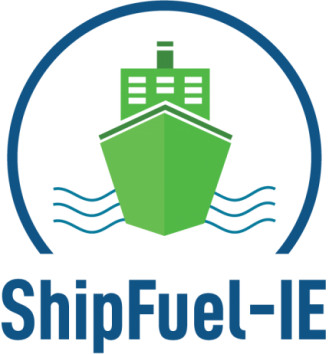
ShipFuel-IE

- Title:
-
Developing pathways for a sustainable shipping and maritime fuel value chain in Ireland (ShipFuel-IE)
- Start Date:
-
1st May 2023
- End Date:
-
30th April 2026
- Funding Body:
-
Sustainable Energy Authority of Ireland (SEAI) and Department of Transport (DoT) under the Research Development and Demonstration (RD&D) funding programme
- Coordinator:
- Project Partners:
-
Gavin and Doherty Geosolutions (GDG)
- Principal Investigators:
- Research Area:
-
Energy Transition, Advanced Fuels in the Circular Economy
Introduction
As an island nation, the shipping sector is a vital cog in the Irish economy. In 2019, Irish ports handled 53.2 million tonnes of goods. In addition to its role as a facilitator of international trade, the maritime sector also acts as a gateway for people travelling to and from Ireland, with 2.6 million passengers passing through Irish ports in 2019. However, the shipping sector is currently almost exclusively reliant on imported fossil fuels, and is a significant source of greenhouse gas emissions. In light of this, the European Union (EU), have announced the “FuelEU Maritime” proposal under the “Fit for 55” package, which requires the carbon intensity of marine fuels used within the EU to decrease by 75% by 2050. However, there is uncertainty surrounding which combination of renewable fuels and low-carbon propulsion systems are most suited to the shipping sector. The ShipFuel-IE project intends to provide clarity to stakeholders in the Irish maritime sector regarding the transition to a low-carbon and sustainable marine value chain.
Aim
The four high-level research questions the ShipFuel-IE project seeks to answer are as follows:
- What fuels are currently used in the shipping sector and in what quantities? What fuels are expected to play a role in future shipping? What scale can these fuels be produced at? What cost can these fuels be produced at? What are the greenhouse gas emissions associated with the production of these fuels?
- What is the scale of infrastructure required and cost associated with transitioning Irish ports to deliver low-carbon and sustainable fuel for the maritime industry? What is the current status and future development plans of the Irish maritime facilities? How can planned developments be adjusted to maximise the role that Ireland can play in decarbonising the national and international shipping fleet?
- What are the cost implications of low-carbon ships? Is retrofitting more cost-effective than purchasing new-build vessels? Does the type of shipping (i.e. short-sea vs deep-sea) impact the choice of low-carbon fuel?
- What is the optimum pathway to decarbonise the entire marine sector value chain in Ireland?
Work Packages
The project is divided into six interlinked, multidisciplinary Work Packages (WPs), as described below:
- WP0 – Project management
- WP1 – Fuels
- WP2 – Infrastructure
- WP3 – Vessels
- WP4 – Pathways
- WP5 – Communication, stakeholder engagement and dissemination







